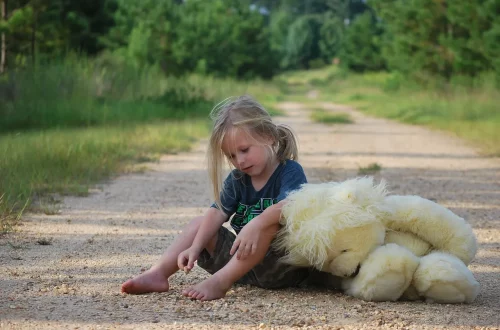
Understanding Weight Loss in Older Dogs: Causes and Solutions
As dogs age, their bodies undergo a variety of changes that can significantly affect their health and well-being. One of the most concerning issues for pet owners is weight loss in older dogs. While weight loss can be a normal part of aging, it often signals underlying health problems that require attention. Understanding the complexities involved in weight loss among senior dogs is crucial for ensuring they lead a healthy and comfortable life during their golden years.
Many factors contribute to weight loss in older dogs, including metabolic changes, dental issues, and hormonal imbalances. Furthermore, the emotional and psychological aspects of aging can also play a role. Dogs that experience anxiety or depression may lose their appetite, further exacerbating weight loss. As responsible pet owners, it is essential to recognize the signs of weight loss and investigate the potential causes.
In this article, we will explore the various reasons behind weight loss in older dogs and provide practical solutions for addressing this issue. By gaining a better understanding of the factors at play, you can take proactive steps to support your furry companion’s health and ensure they enjoy their later years to the fullest.
Common Causes of Weight Loss in Senior Dogs
Weight loss in older dogs can stem from a myriad of factors. One of the most prevalent causes is a decrease in their metabolic rate. As dogs age, their bodies become less efficient at processing food, leading to changes in weight. This metabolic slowdown can result in a lower energy requirement, which means that the amount of food they need may decrease.
Additionally, dental health plays a significant role in a dog’s ability to eat and enjoy their meals. Older dogs often suffer from periodontal disease or other dental issues, which can cause pain and discomfort while eating. If a dog experiences difficulty chewing or swallowing, they may avoid food altogether, leading to significant weight loss. Regular dental check-ups and cleanings are essential, as they help maintain not only dental health but overall nutritional intake.
Hormonal changes are also common in senior dogs. Conditions such as hyperthyroidism or Cushing’s disease can contribute to weight loss. Hyperthyroidism results from an overproduction of thyroid hormones, leading to increased metabolism and, ultimately, weight loss despite normal or increased food consumption. On the other hand, Cushing’s disease can cause muscle wasting and changes in appetite. Regular veterinary check-ups, including blood tests, can help in identifying and managing these hormonal disorders.
Lastly, psychological factors, such as depression or anxiety, can lead to a decrease in appetite. Older dogs may experience feelings of loss or changes in their environment, such as the death of a companion or a move to a new home. These emotional stresses can significantly impact their eating habits and overall well-being.
Identifying Signs of Weight Loss and Health Issues
Recognizing the signs of weight loss in older dogs is crucial for timely intervention. Weight loss may not always be obvious, so it’s essential to monitor your dog’s weight regularly. A simple way to track this is by weighing your dog on a scale at home or during veterinary visits.
Additionally, observe their body condition. You should be able to feel your dog’s ribs without excessive pressure, and there should be a noticeable waist when viewed from above. If your dog starts to look thin or loses muscle mass, it’s a sign that something may be wrong.
Changes in appetite are another critical indicator. If your dog suddenly stops eating or shows a disinterest in meals they once enjoyed, this could point to an underlying health issue. Pay attention to any behavioral changes as well; lethargy, changes in sleeping patterns, or increased irritability can signal distress.
Another factor to consider is their hydration. Older dogs may become dehydrated, affecting their overall health and appetite. Ensure fresh water is always available and monitor their drinking habits. If you notice a decrease in water intake, it may be time to consult with your veterinarian.
Regular veterinary visits are vital for early detection of any health issues. Your veterinarian can perform routine blood tests and physical examinations to identify potential problems before they escalate. By being proactive about your dog’s health, you can catch issues early and take appropriate action.
Effective Solutions for Managing Weight Loss
When it comes to managing weight loss in older dogs, a multifaceted approach is often the most effective. First and foremost, consulting with your veterinarian is essential. They can provide a thorough examination and recommend a tailored plan to address the specific needs of your dog.
Dietary changes may be necessary to help your dog regain weight. Consider switching to a high-quality, nutrient-dense dog food formulated specifically for senior dogs. These diets often have higher protein content and are designed to meet the unique needs of older pets. Incorporating wet food can also be beneficial, as it is often more palatable and easier to eat for dogs with dental issues.
Another strategy is to implement smaller, more frequent meals throughout the day rather than one or two larger meals. This can help stimulate appetite and make eating less overwhelming for your dog. If your dog is particularly picky, adding a small amount of low-sodium broth or warm water to their food may enhance its aroma and flavor, encouraging them to eat.
In cases where dental issues are affecting your dog’s ability to eat, addressing these problems is vital. Your veterinarian may recommend dental cleanings or extractions to improve your dog’s comfort while eating. If your dog is experiencing pain, pain management strategies can also be discussed.
Additionally, maintaining an active lifestyle is important for older dogs. While they may not have the same energy levels as they did in their youth, regular exercise can stimulate their appetite and improve their overall health. Short, gentle walks or play sessions can help keep them engaged and encourage a healthy weight.
Finally, consider addressing any psychological factors that may contribute to weight loss. Providing a stable environment, engaging in interactive play, and spending quality time with your dog can help alleviate anxiety and improve their mood.
The Importance of Regular Veterinary Check-Ups
Regular veterinary check-ups are crucial for maintaining the health of senior dogs, especially when it comes to weight management. As dogs age, their bodies become more susceptible to various health issues, and early detection can make a significant difference in treatment outcomes.
During routine visits, veterinarians can conduct comprehensive examinations to assess your dog’s overall health. Blood tests, urinalysis, and physical exams can help identify underlying conditions that might contribute to weight loss. Regular monitoring allows for timely interventions, which can significantly improve your dog’s quality of life.
Vaccinations and preventive care should also be part of your senior dog’s health plan. Keeping up to date with vaccinations and parasite control can prevent additional health complications that may arise from preventable diseases.
In addition to physical health, veterinarians can provide guidance on nutrition and weight management tailored specifically to your dog’s needs. They can recommend diet plans, supplements, and exercise regimes that are appropriate for your pet’s age and health condition.
Moreover, if your dog is undergoing treatment for any underlying health issues, regular visits will allow for monitoring their progress and adjusting treatment plans as necessary. This proactive approach can help ensure that your dog not only maintains a healthy weight but also enjoys a better quality of life.
In conclusion, understanding the causes of weight loss in older dogs and seeking solutions is vital for their well-being. By being proactive and consulting with your veterinarian, you can provide the care and support your furry companion needs throughout their golden years.
**Disclaimer:** This article is not intended as medical advice. Always consult with your veterinarian for health concerns regarding your pet.



